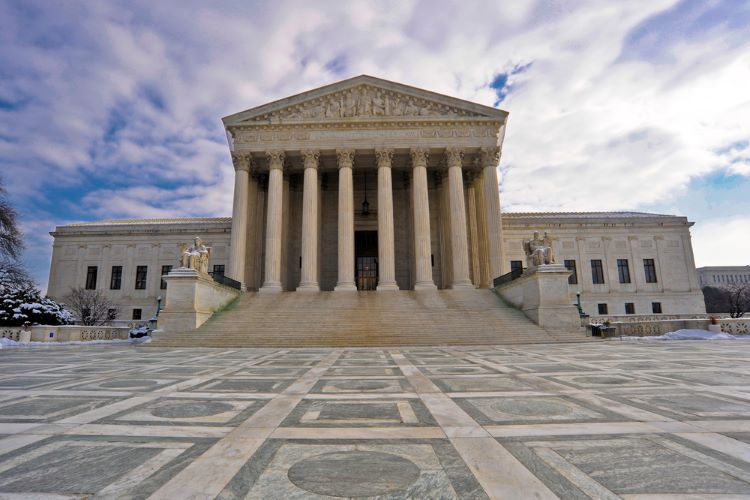Gays can't be excluded from juries because of sexual orientation, 9th Circuit says
A federal appeals court has ruled that lawyers can’t exclude potential jurors solely on the basis of sexual orientation, creating a circuit conflict that could make Supreme Court review more likely.
The San Francisco-based 9th U.S Circuit Court of Appeals ruled on Tuesday, report the New York Times and the Los Angeles Times. The panel opinion (PDF) finding an equal protection violation conflicts with a 2005 decision by the St. Louis-based 8th U.S. Circuit Court of Appeals, the New York Times says.
“Gays and lesbians have been systematically excluded from the most important institutions of self-governance,” Judge Stephen Reinhardt wrote for the 9th Circuit panel. “Strikes exercised on the basis of sexual orientation continue this deplorable tradition of treating gays and lesbians as undeserving of participation in our nation’s most cherished rites and rituals.”
The decision extends the U.S. Supreme Court’s 1986 ruling in Batson v. Kentucky that lawyers couldn’t strike potential jurors solely because of their race. The Supreme Court extended Batson to cover strikes based on gender in 1994.
The 9th Circuit case involved a potential juror who spoke about his male partner during voir dire in an antitrust trial involving pricing for an HIV medication. A lawyer used a peremptory challenge to remove the juror.
The lawyer told the trial judge he had no idea whether the potential juror was gay. Reinhardt said the claim was “inconsistent with the record” and the lawyer had failed to offer a reason for the peremptory strike of the juror, referred to as “Juror B.”
The lawyer asked Juror B only five questions and “failed to question him meaningfully about his impartiality or potential biases,” Reinhardt wrote. Voir dire reveals the strike was not based on a concern about actual bias, Reinhardt said, but rather on “a discriminatory assumption that Juror B could not impartially evaluate the case because of his sexual orientation.”
The case is SmithKline Beecham Corp. v. Abbott Laboratories.



